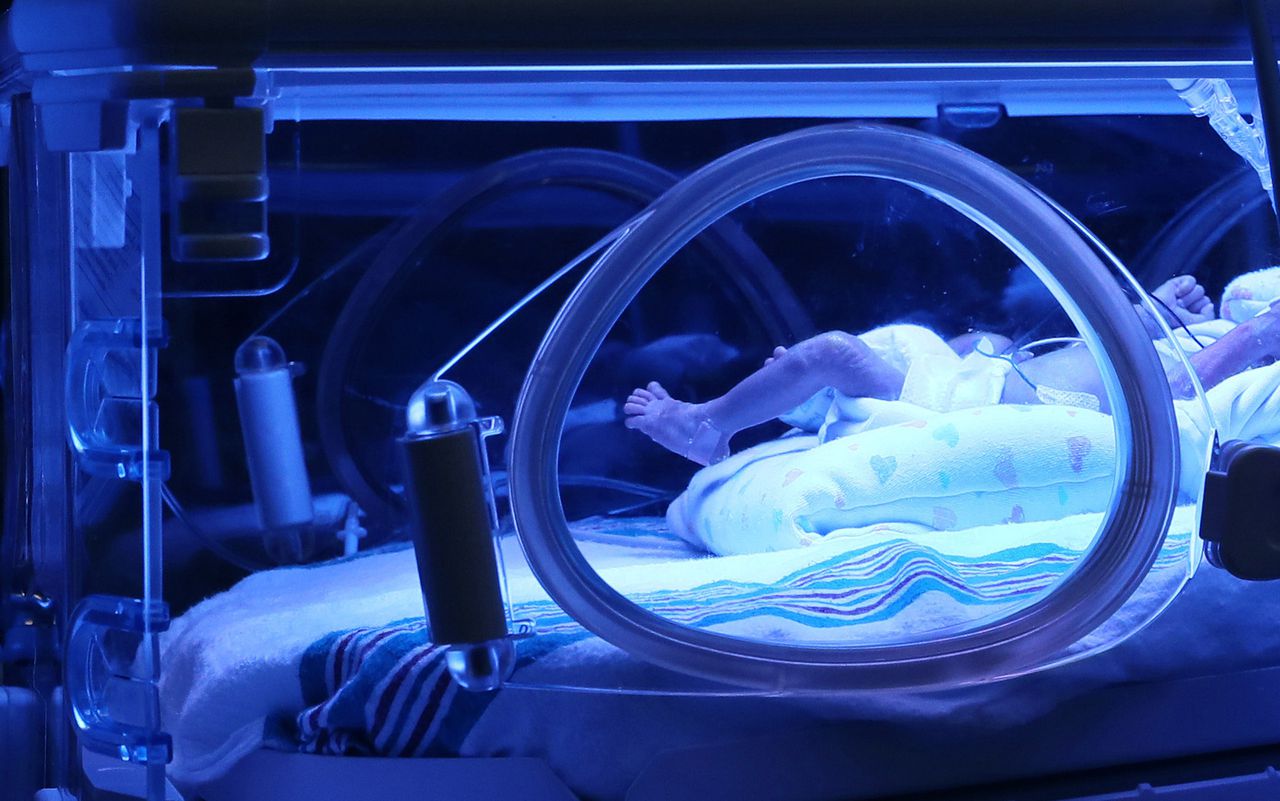More counties could lose obstetric care in Alabama: âLabor and deliveries donât make moneyâ
The closure of three labor and delivery departments in less than one month will leave two counties without services for laboring moms and many wondering what comes next.
“Labor and deliveries don’t make money,” said Dr. John Waits, CEO of Cahaba Medical Care. “They don’t make money without volume and it’s hard to compete for volume. There aren’t enough humans in rural areas to have OB/GYNs move there.”
Princeton Baptist Medical Center in Birmingham’s West End and Shelby Baptist Medical Center south of Birmingham closed their obstetrical departments on Oct. 25, while Monroe County Hospital in south Alabama will follow suit on Nov. 15. The closures leave Shelby and Monroe counties with no labor and delivery services, adding them to a growing number of communities classified as maternity care deserts.
Since 1980 the number of rural hospitals with labor and delivery departments has fallen from 45 to just 16, according to the Alabama Department of Public Health.
Experts say that these probably won’t be the last.
Operating a labor and delivery department requires at least two doctors and most need more than that, said Waits. Nurses and facilities also cost money, and those costs are fixed, whether a hospital has 50 births a month or 10.
Waits and his colleagues at Cahaba Medical Care, a network of rural clinics, reopened a labor and delivery unit in Bibb County in 2016. Before it opened, a patient arrived in his office ready to deliver a baby, miles away from a hospital with obstetrical care.
“They are hobbling around and I’m like that doesn’t look right,” Waits said. “So, we set up the procedure room and we did a delivery.”
That happened twice in Bibb County. Another employee at a clinic in Perry County had to drive a patient in her private car to the nearest hospital after she arrived in an advanced stage of labor and after her water broke, Waits said.
When a labor and delivery department shuts down, prenatal and gynecology care often follow, said Dr. Donald Williamson, president of the Alabama Hospital Association.
“It’s less of a problem in Shelby and Birmingham, but it’s going to be a problem in Monroeville,” Williamson said of the larger metro counties. “Because patients are now going to have to drive 30 to 40 miles for prenatal care. And in rural Alabama, access to transportation remains one of the biggest challenges in getting adequate healthcare.”
Monroe County Hospital lost an obstetrician and couldn’t find a replacement, according to a statement. That triggered the decision to close the department since a single obstetrician can’t provide enough coverage.
“The hospital has for years contributed enormous resources to maintain the Labor and Delivery service,” according to the Monroe County Hospital statement. “The hospital has employed physicians, guaranteed physicians’ income, and continued to actively recruit physicians. It seems no amount of money provided by the hospital board for the support of Labor and Delivery has been sufficient to maintain this service.”
The difficulty of recruiting and keeping obstetricians has confronted many rural hospitals. They also face other struggles, including the financial instability that comes from serving an older and lower-income population that often lacks insurance coverage, Williamson said.
The association has advocated for Medicaid expansion in part to help rural hospitals, but he said the pressures on labor and delivery departments are only indirectly linked to the coverage gap.
“Medicaid was designed for pregnant women and children,” Williamson said. “So, there are very few pregnant women in Alabama who are not insured. Where the failure to close the coverage gap comes into play is the overall financial viability of a hospital.”
Labor and delivery departments have been closing across the country, in both states that have expanded Medicaid and those that haven’t. North Dakota, which expanded Medicaid in 2013, has the largest percentage of counties classified as maternity care deserts, according to the March of Dimes.
Closures have also hit Southern states hard, including several that have not expanded Medicaid.
In the Birmingham area, two hospitals owned by Dallas-based Tenet Healthcare shut down labor and delivery. The hospital system will keep delivering babies at Brookwood Baptist Hospital in Homewood and Walker Baptist Hospital in Jasper. The closures leave fast-growing Shelby County without a hospital that delivers babies.
It will also affect the neighborhoods near Princeton Baptist Medical Center, which had a highly rated obstetrical program that served patients from both the low-income communities nearby and those seeking innovative care that incorporated nurse midwives and doulas.
On Wednesday, Oct. 25, employees and friends honored the last shift of labor and delivery workers as they left the hospital for the last time. Amid a shower of confetti and bubbles, employees wiped away tears and shared hugs.
“It’s a huge loss,” said Dalia Abrams, a doula at BirthWell Partners who had assisted many births at Princeton.
Waits, who has studied infant outcomes in counties without labor and delivery services, said it might be hard to measure how the closure of the department at Princeton Baptist will affect patients. It’s likely to hurt the poorest patients the most, he said.
In 2016, he and his colleagues worked to reopen a labor and delivery unit in Bibb County, using federal grants and support from residency training programs. Before the department reopened, the infant mortality rate in Bibb County hovered at around 12 deaths per 1,000 live births. After labor and delivery reopened, it fell to eight per 1,000 births.
“It’s not rocket science,” Waits said. “Having a labor and delivery open means more babies are going to live. That’s what we’re all worried about in Monroe in Shelby counties.”
